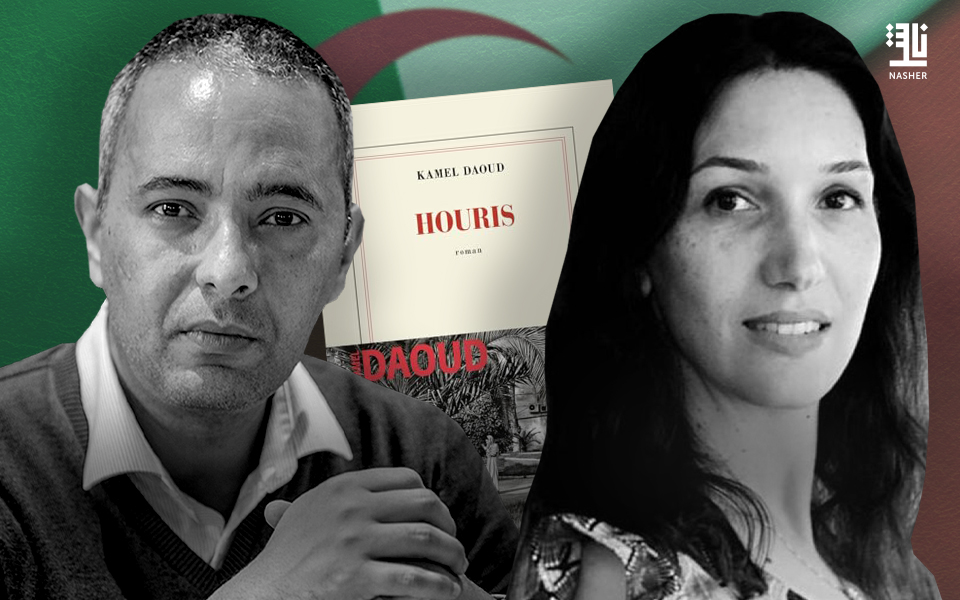Two complaints have been filed in Algeria against the French-Algerian author Kamel Daoud, the winner of France’s most prestigious literary award, and his wife, a therapist, alleging that they used a patient’s life story as the basis for his prize-winning novel.
The writer, the first Algerian novelist to be awarded the Prix Goncourt, won this year’s prize for his novel Houris, a fictional account of a young woman who lost her voice when an Islamist cut her throat during the country’s brutal 1992-2002 civil war.
But a woman who survived one of the massacres has appeared on Algerian television, alleging that the book’s heroine – named Fajr – is based on her own personal story.
As a girl, Saada Arbane had her throat cut in an Islamist militant attack that wiped out most of her family, and now communicates through a speaking tube. In the book, Fajr has suffered the same fate.
Ms Arbane said that from 2015 she had several psychiatric sessions with Daoud’s future wife, Aicha Dahdouh, and she accused the couple of using her story without her consent.
She said that many details in the heroine’s life – “her speaking tube, her scars, her tattoos, her hairdresser” – came directly from what she told Ms Dahdouh. Likewise, she said, Fajr’s relationship with her mother and her desire for an abortion.
Ms Arbane alleged she answered an invitation to meet Daoud three years ago, but refused when he asked if he could use her story as the basis for his book.
“It’s my life. It’s my past. He had no right to chuck me out like that,“ she told Algeria One TV.
Since the novel was published, Daoud said he has been the target of “violent defamatory campaigns organised by media close to” the Algerian regime. Ever since the 1896 trial against Jules Verne for his novel, Facing the Flag, judges have ruled that “novelists may be inspired by real facts surrounding events they have experienced and people they have known to create a work of fiction”.
Arbane’s lawyer, the Algiers-based Fatima Benbraham, was reported as also accusing Daoud of defaming victims of terrorism and violating the Algerian law on national reconciliation, which prohibits publication of details about the so-called black decade.
Antoine Gallimard of the publishing house Éditions Gallimard has defended Daoud, who worked as a journalist and columnist in Algeria but now works in Paris for the French magazine Le Point, and his wife, saying they are the victims of orchestrated attacks.
Daoud has been a columnist for the French weekly news magazine Le Point for 10 years. He was the first occupant of the writer-in-residence chair at the selective research university Sciences Po in 2019, and returned to the school year to teach writing, journalism and Franco-Algerian relations.
“While Houris was inspired by the tragic events that occurred in Algeria during the civil war of the 1990s, its plot, its characters and its heroine are purely fictitious,” Gallimard, who was told the publishing house could not participate in this month’s Algiers book fair.e It is assumed because the publisher had planned to display Houris, which is banned in Algeria.







